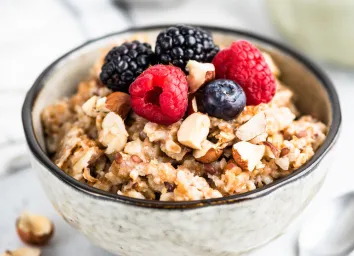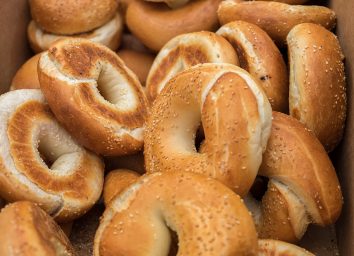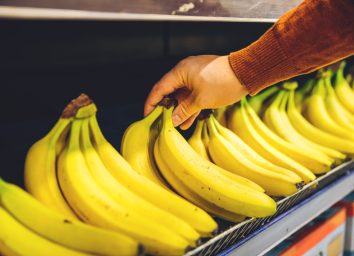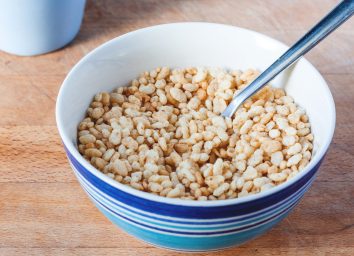15 Carbs Myths That Are Totally Bogus
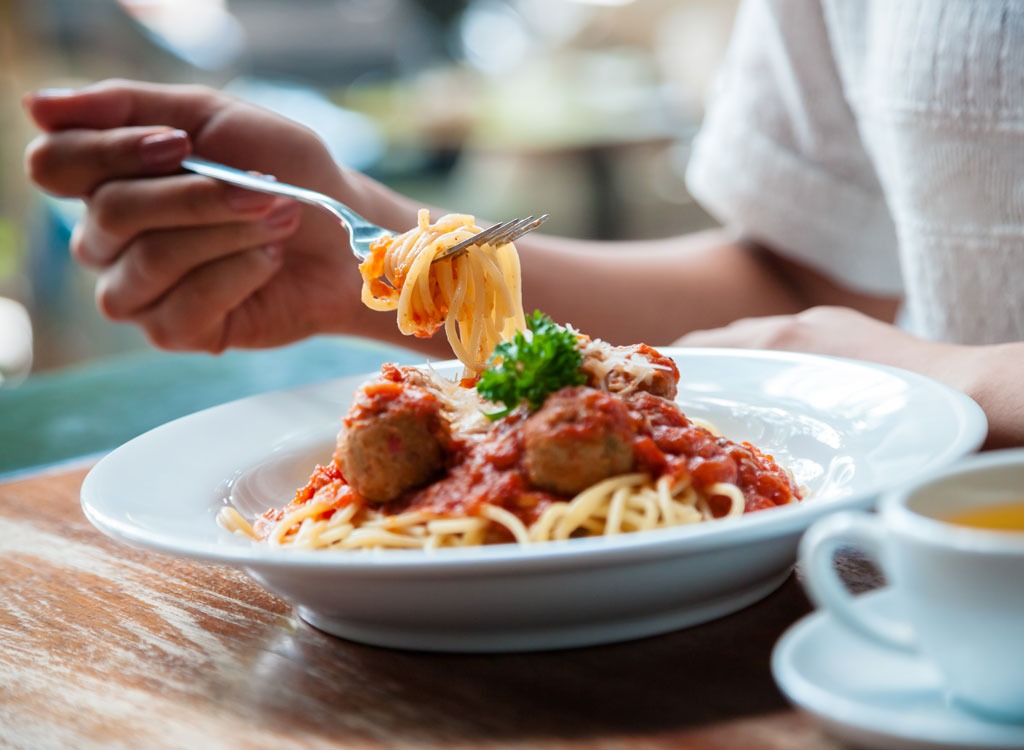
Carbs have always been public enemy #1, especially for those trying to lose weight. But at the same time, there’s also a lot of confusion around what they really are. (i.e. the classic Mean Girls quote “Is butter a carb?”). To answer Regina George’s question: no. Milk products, including butter, are considered fats. But Regina’s question reveals a common issue: there are a lot of misconceptions and myths about carbs. For example, contrary to popular belief, carbs are a much larger food group that goes beyond white bread and pizza.
Furthermore, carbs are not as insidious as most of us think. Studies, including research from the Journal of the Academy of Nutrition and Dietetics, have shown that dietary fiber (a type of carbohydrate) found in foods such as whole grains, fruits, and veggies is necessary to maintain a normal weight and healthy heart and to keep your digestive system regular.
Here, we debunk some of the major misconceptions about carbs and how to incorporate the right ones into your diet. And if you’re not already convinced, here are 9 Signs You Should Be Eating More Carbs.
Only Bread, Pasta, and Potatoes Are Considered Carbs
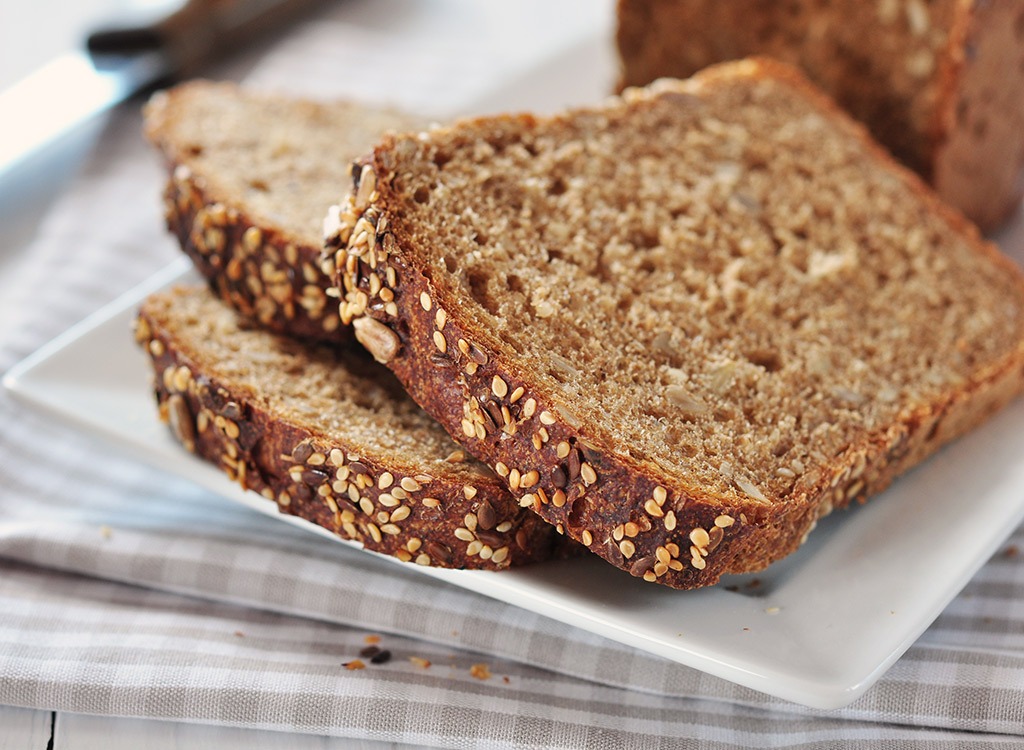
Carbohydrates are macronutrients your body breaks down into glucose, a type of sugar—but don’t panic yet. There are two types of carbohydrates: Simple and complex. Simple carbs are found mainly in fruits and vegetables, but also in refined (processed) grains, cakes, and other baked goods. Complex carbs are found in whole-grain bread and pasta as well as legumes, potatoes, and other starchy vegetables. Carbs the main source of energy in your body.
STAY INFORMED: Sign up for our newsletter to get the latest food news delivered straight to your inbox.
All Carbs Are Unhealthy For You
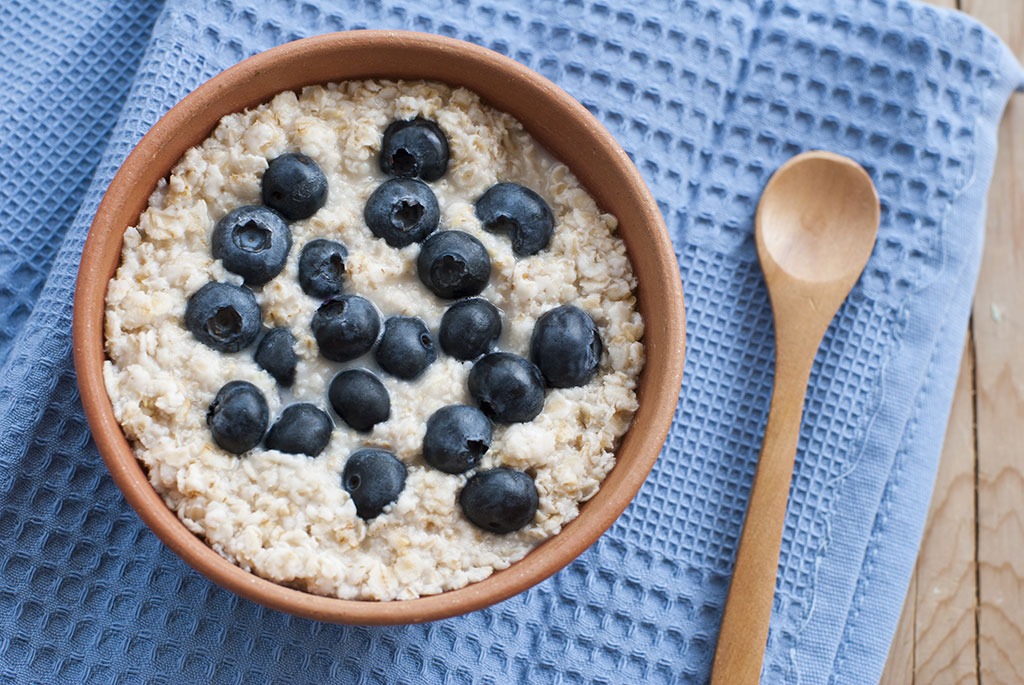
The carbs you want to double down on are unrefined, whole grains, because those are what give you the necessary nutrients, like fiber, to digest and sustain energy. “All carbs contain a certain quantity of fiber; however, when the grains are refined, much of the fiber is lost, so we can only really say that unrefined foods are a source of fiber,” says Antonia Califano, PhD, co-founder of Styleoga and author of Anti-Diet. So eating nourishing, filling whole grains won’t wreck your diet; it’s the unhealthiest refined carbs that you want to avoid.
Fiber Isn’t Found in Carbs
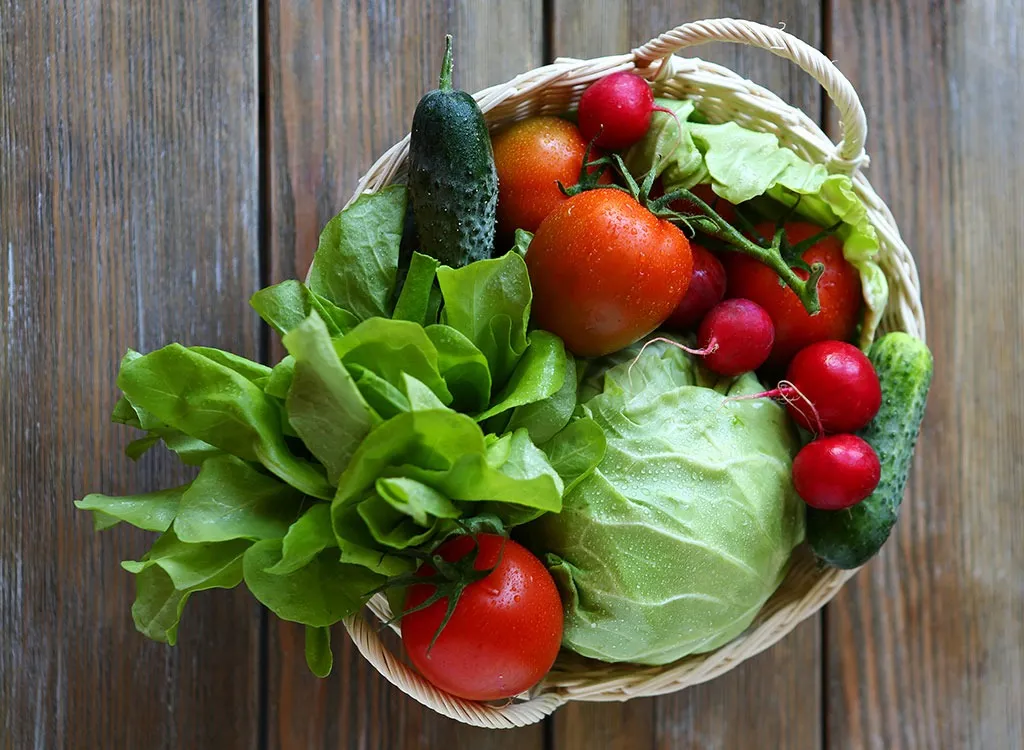
Quite the contrary actually—carbs are basically the major sources of fiber. In fact, fiber is technically a carbohydrate, but it doesn’t break down into sugar. Instead, it helps keep your body’s blood sugar levels stabilized. According to the Harvard School of Public Health, the body needs the fiber in whole-grain breads, beans, oats, and many fruits and vegetables, including apples, cucumbers and carrots, to properly digest food and absorb nutrients. The Academy of Nutrition and Dietetics recommends women aim for 25 grams of fiber per day and men, 38 grams. Fiber-rich foods can also help lower your risk for heart disease, diabetes, and certain cancers.
Carbs Make You Put on Weight
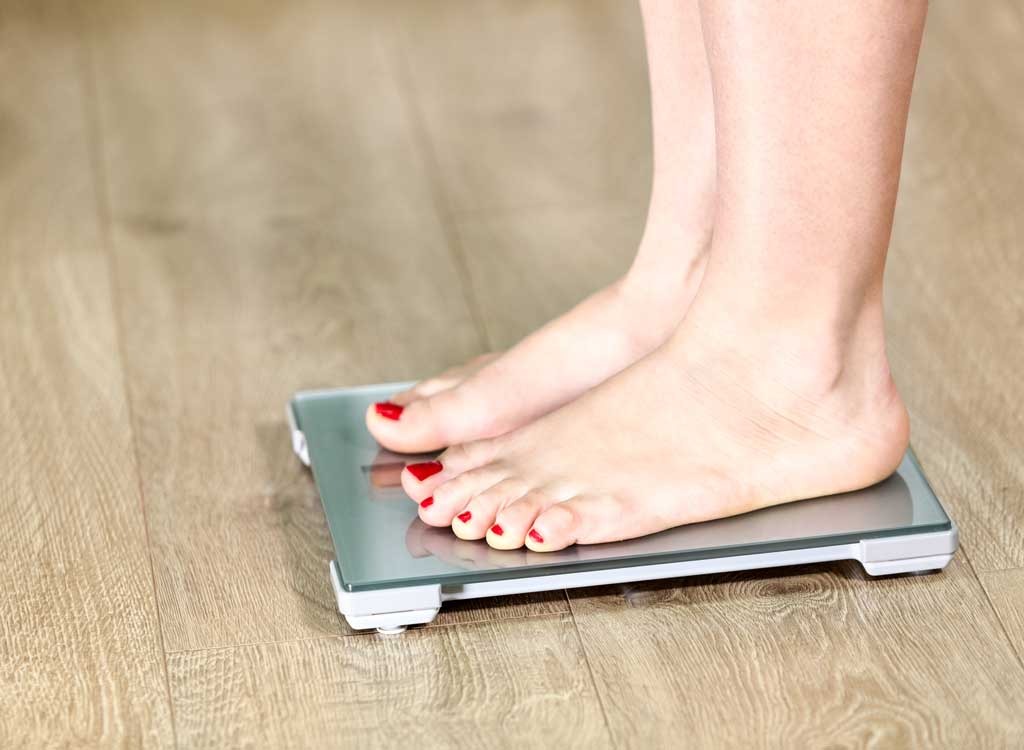
In fact, this can be the opposite of true. Nutritionists say that carbs can actually help people lose weight or maintain a healthy weight. One of the secrets? The fiber content in carbs. Fiber keeps you full and energized—otherwise, you won’t have enough gas in the tank for exercise, a key factor in maintaining a healthy weight. Sure, overeating white bread and pizza dough aren’t going to help anyone lose weight, but that’s not what we’re talking about here, in terms of high-fiber, whole foods. Plus, limiting carbs means loading up on proteins and fats, which are much higher in calories, dietitian Jim White, RD, ACSM, and owner of Jim White Fitness and Nutrition Studios adds, so that would add to weight gain instead of the carbs themselves.
There’s Too Much Sugar in Carbs
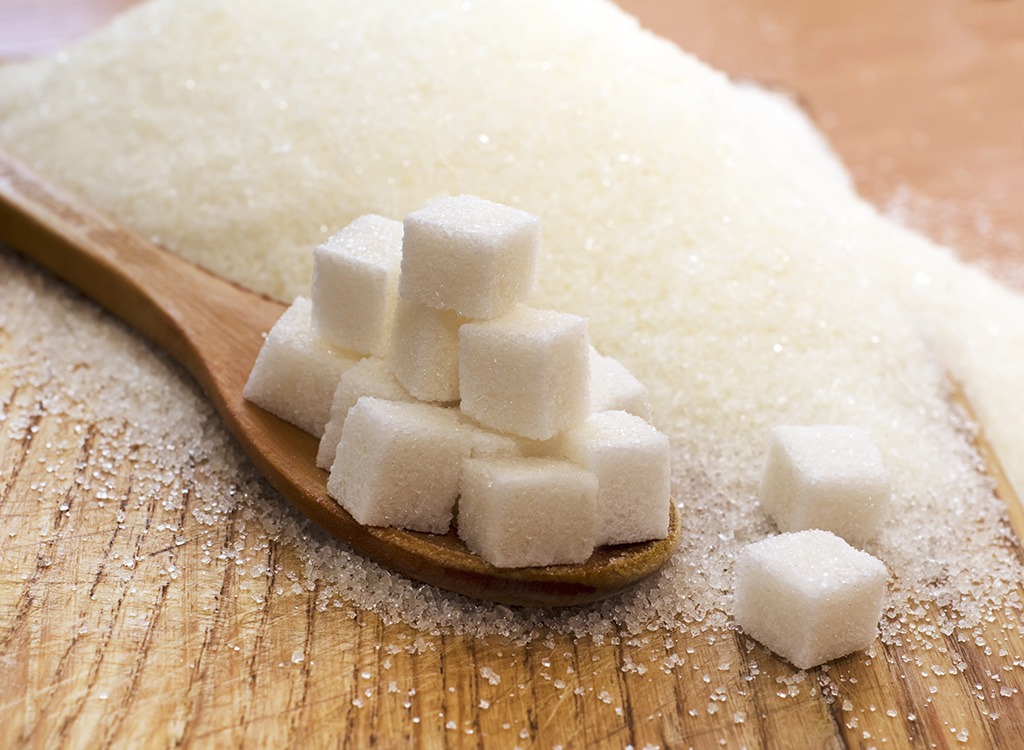
If you’re worried about your sugar intake, that’s a legitimate concern, but your best bet is to stick to the natural sugars in fruits rather than the processed white stuff that hides in many cereal, cookies, cakes, and other snacks. Even whole grains, for instance, whole-wheat bread, still breaks down into sugar in the body. The difference is that it won’t make your blood sugar spike and crash like refined grains will. Cutting out added sugars has also been shown to help blast belly fat and boost energy levels and mood (yes, even more than a cookie will).
Every Carb Has Gluten
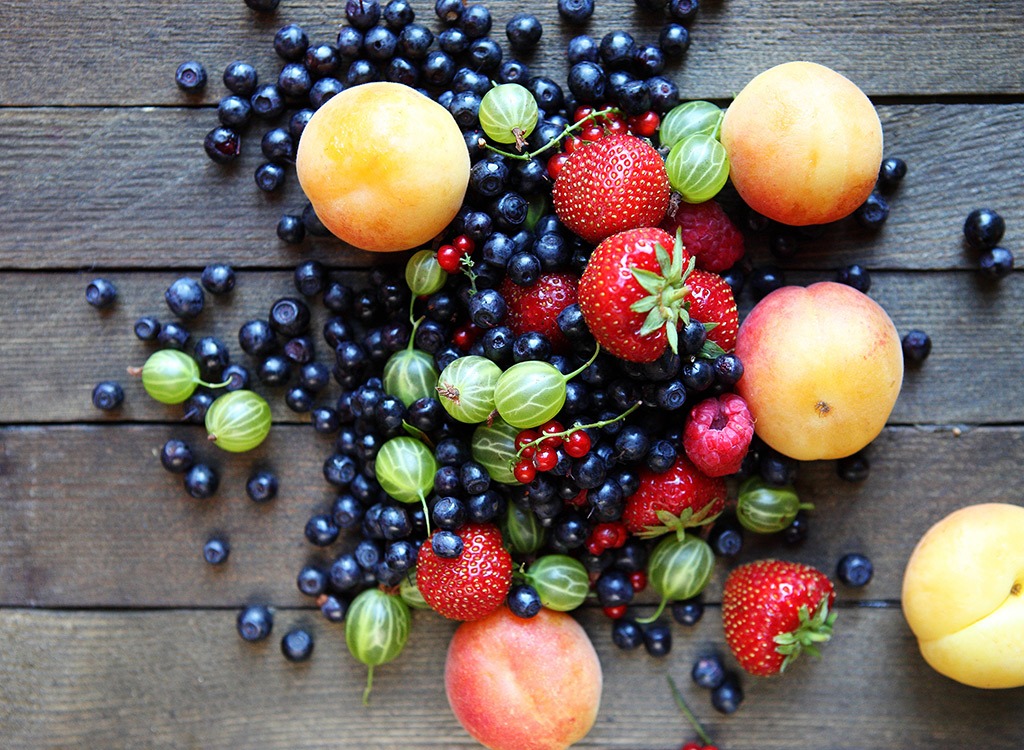
Despite their mutual association with bread, pasta, and other grains, gluten and carbs aren’t necessarily synonymous. According to the Celiac Disease Foundation, gluten is a protein found in many wheat products and flours, but it’s also in sauces, dressings, and deli meats. It can cause discomfort in many gluten-sensitive people, especially those with celiac disease, but that’s not to say that all carbs have gluten. If you can’t tolerate gluten, it’s best to stick to fiber-rich, gluten-free grains such as quinoa and brown rice, as well as vegetables, fruits, and legumes. But if you aren’t gluten intolerant, there’s no need to eliminate it from your diet. A study published in the BMJ found that people who follow a gluten-free diet but aren’t gluten intolerant or don’t have celiac disease have a greater risk for heart disease, because they aren’t consuming enough whole grains.
You Will Feel Sluggish After Eating Carbs

It’s a common misconception that consuming too many carbs will make you feel tired and unproductive. But, an animal study discovered that it was not only the size of the meal that’s a factor, but also the protein and salt content that made the subjects slip into a “food coma.”
Don’t Eat Carbs Before Exercise

Carbs—the right kind—won’t weigh you down before a workout. It’s all about timing and the type of grain you choose to load up on. “In an athlete’s diet, carbs cannot be missing,” Dr. Califano says. “They are necessary to give immediate energy and improve performance, but obviously they must be controlled and consumed at a timed distance from training. If you’re working out in the late afternoon, she suggests a plate of 70 to 80 grams of whole-grain pasta for lunch, with a simple sauce or cheese so it isn’t too heavy, at least two hours before the workout. “After the workout, protein is required to restore the muscles,” she adds.
Protein Is More Important Than Carbs
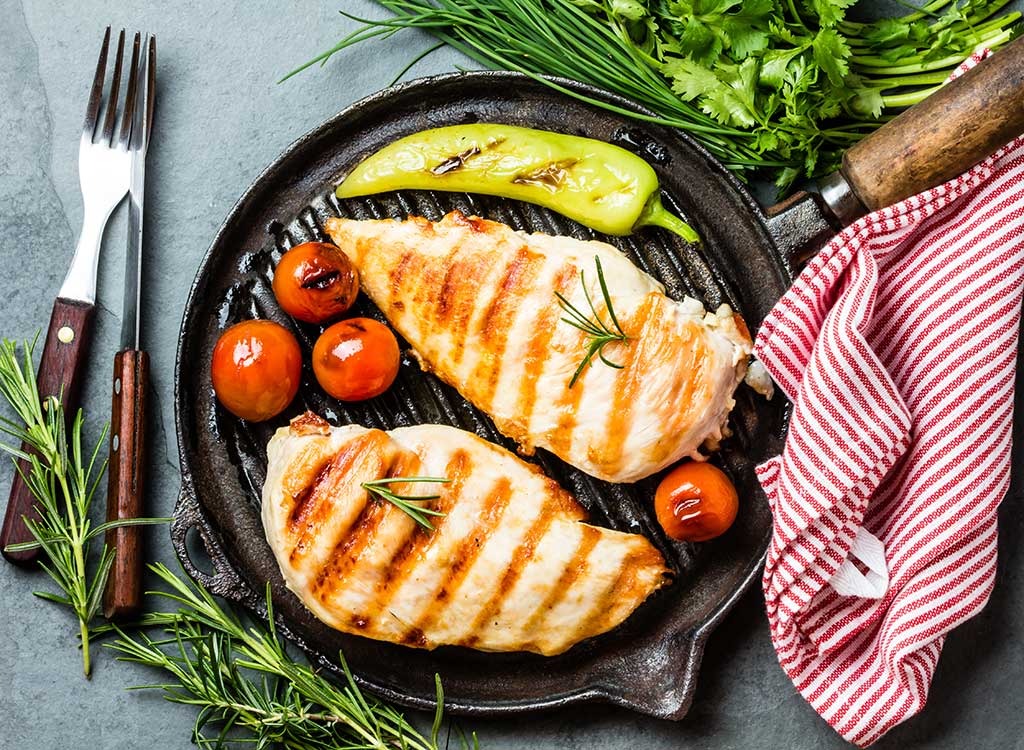
Yes, protein is essential, especially if you lead an active lifestyle and are constantly training your muscles, but carbs can’t be ignored in relation to protein. A study from Cell Reports states that a diet higher in carbs and lower in protein can jump-start the body’s metabolism even more. Other research has found that protein and carbs work harmoniously to help you process sugar. Moreover, eating a combination of protein and veggies before complex carbs can prevent glucose from spiking after the meal.
Following a Low-Carb Diet Can Help You Lose Weight
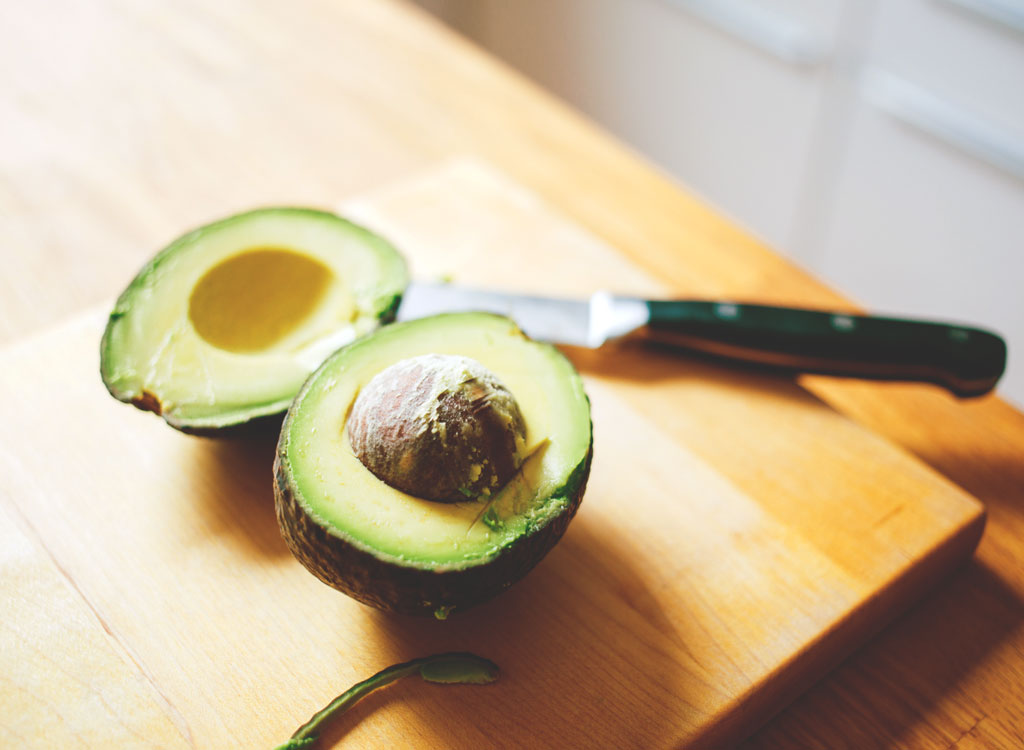
The trendy high-fat keto diet appeals to many because instead of burning carbs, the body trains itself to burn fat, but if you’re using it to lose weight, then you’ve got the wrong idea. Research from the American Society for Nutrition reported that low-carb diets hardly made any detectable difference in weight loss compared to a diet high in carbs. While a low-carb diet may help lower insulin levels, which can be useful for people with diabetes, there’s not enough research to prove the calorie-burning effects. And, many keto dieters have reported “keto flu” symptoms of aches, wooziness, and low energy, so it may not be worth cutting the carbs.
It’s Not A Good Idea to Eat Carbs at Every Meal

There’s a healthy, wholesome way to incorporate carbs into every meal, believe it or not. Dr. Califano advises starting out with a carb-filled breakfast of low-fat yogurt, fruit, whole-grain cereal, and coffee or juice. For lunch, enjoy some whole-grain pasta or brown rice with legumes and a hefty side of veggies. Dinner, especially in the Mediterranean diet, should be the lightest meal and include lean protein, like chicken, eggs, or fish, and another large portion of veggies. She also recommends snacking at least twice a day on nuts, dried fruit, and whole-grain protein bars to keep your energy levels up and your metabolism ticking.
You’ll Always Feel Stuffed from Eating Carbs
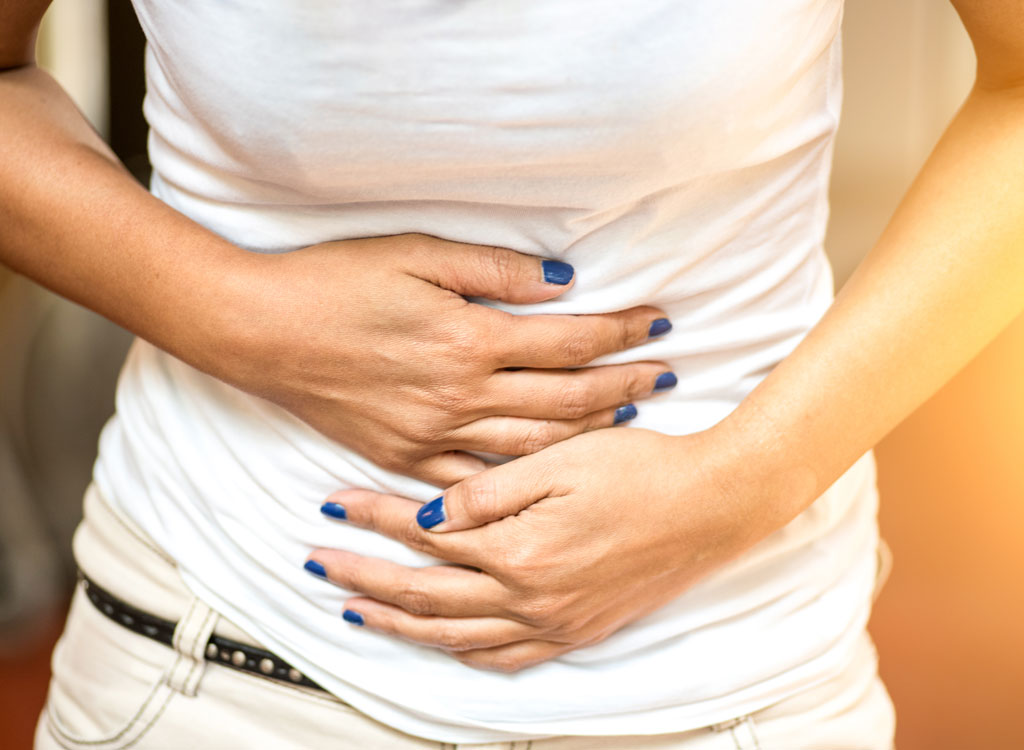
Maybe a big bowl of white pasta will make you feel overloaded with food, but eating the right, unrefined carbs filled with fiber will be the appropriate amount of fullness you need to function. Research published in JAMA found that following low-carb or low-fat diets didn’t necessarily make a difference in maintaining a healthy weight as did a concentration on whole foods, especially fruits, vegetables, and legumes, to feel satiated without feeling uncomfortably stuffed.
You Are Better Off Eating Just Meat Than Carbs
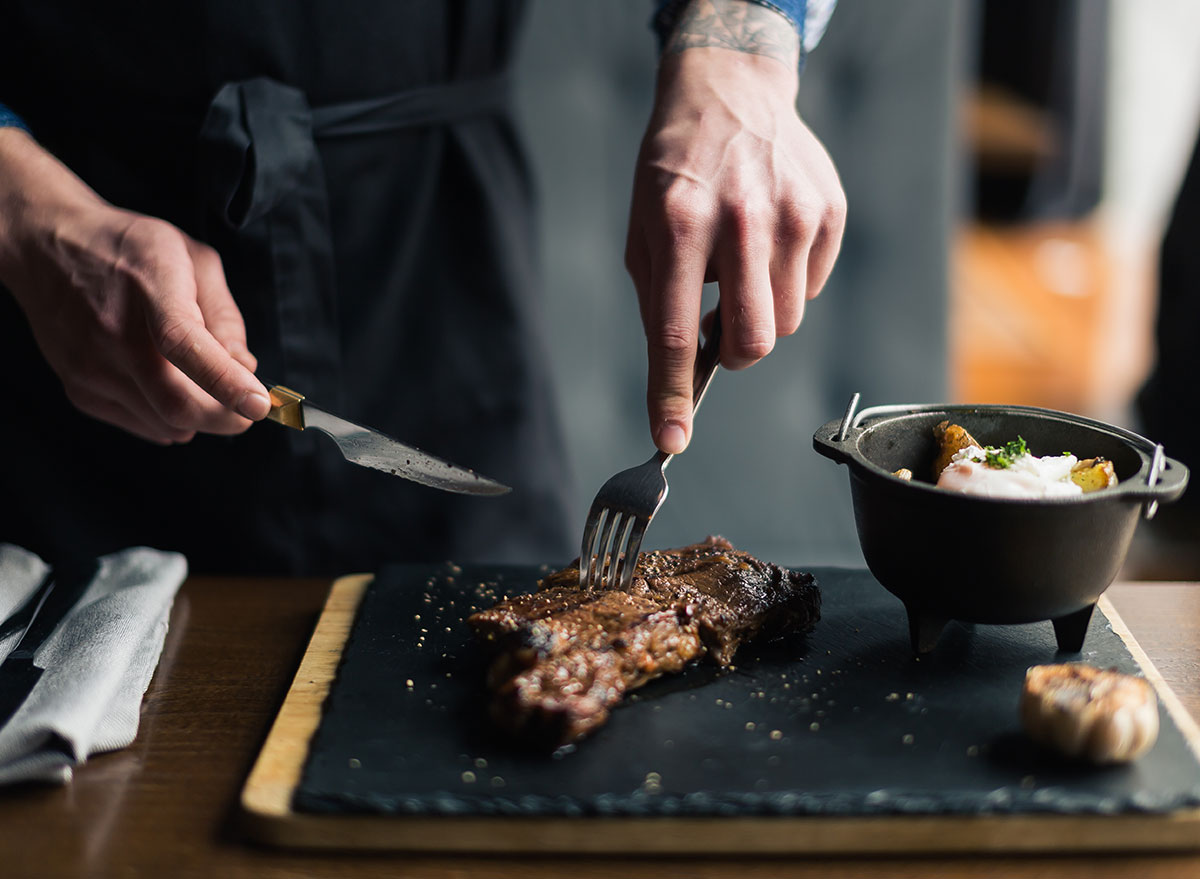
How many times have you seen someone leave off the bun to a hamburger at a cookout in an attempt to be healthy? At that point, cutting carbs doesn’t matter, if you’re already eating red meat. “It’s absolutely wrong to say that all carbs fatten in the same way that it is wrong to think that we can always eat red meat,” Dr. Califano says. “Balance is needed, and studies from the World Health Organization show that a varied diet is required, where red meat is not consumed more than twice a week.” In addition, research conducted at the University of Copenhagen found that carb-rich plant-based protein sources such as any kinds of beans and peas were more filling in the long run and more satisfying than a portion of pork or veal, not to mention lower in fat and calories.
It’s Better to Eat Carbs in the Morning to Burn Them Off

Common sense would make it seem like you need the most carbs in the morning to energize you for the day, so we tend to front-load the day with an avocado toast, cereal, or even a full-on American breakfast: eggs, bacon, and bread. The truth? Not necessarily. Dr. Adam Collins of the University of Surrey found that it doesn’t matter what time of day carbs are consumed, but the time span needed for your body to process them does. So eating whole grain carbs first thing in the morning after the body recovers overnight could be a good choice, but later in the day, after a lighter day carb-wise—a perfect excuse to indulge at night.
They Are Difficult to Digest
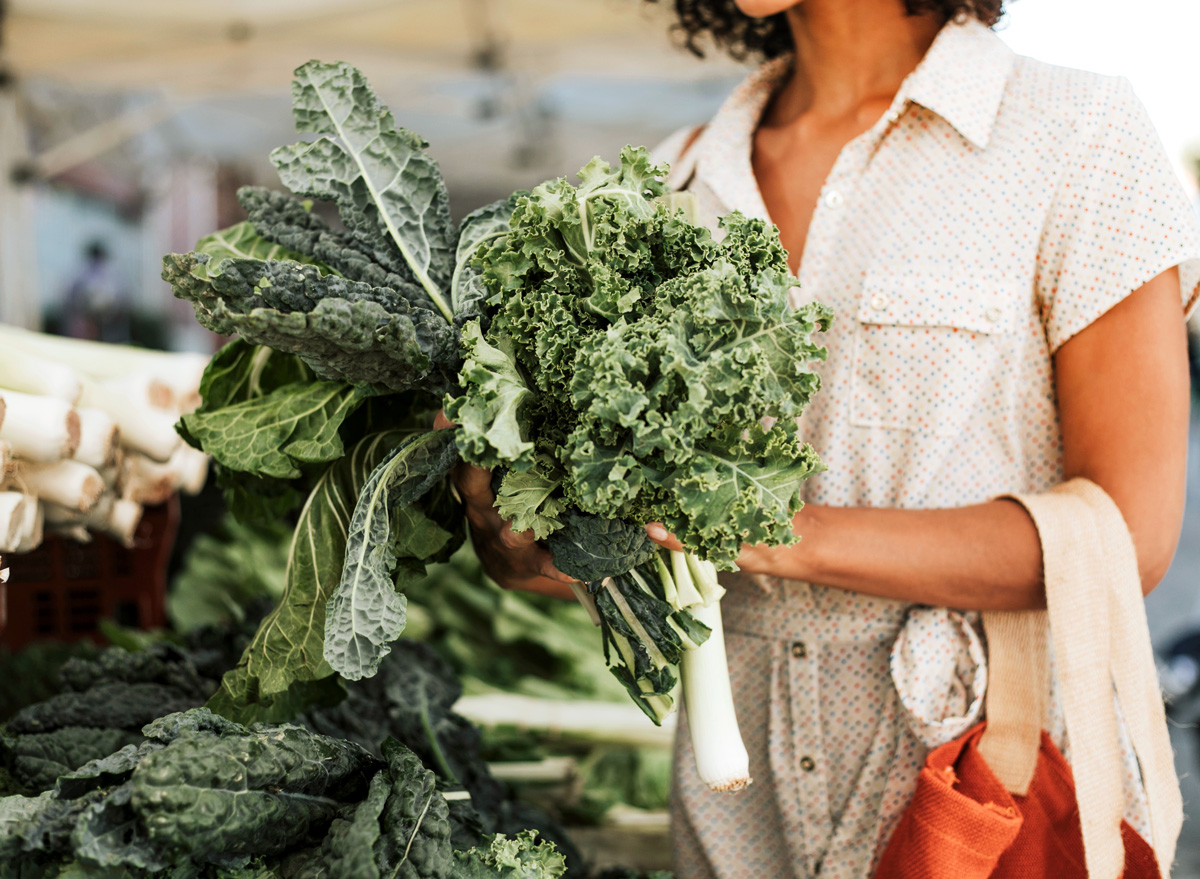
While it’s true that some foods that are higher in fiber can give your digestive system more trouble, this is not the case for all carbs and shouldn’t deter you from having them regularly. Foods higher in insoluble fiber (for example, kale, broccoli, and other cruciferous vegetables) are more difficult to dissolve in the digestive tract and can be the culprit of a stomach upset. Soluble fibers found in whole grains, bananas, and certain veggies, like peppers and cucumbers, are the right carbs to get your digestive system back on track. If you’re concerned about your digestive system, consider fixing your diet by reducing your intake of the 13 Foods That Cause Digestive Problems.
